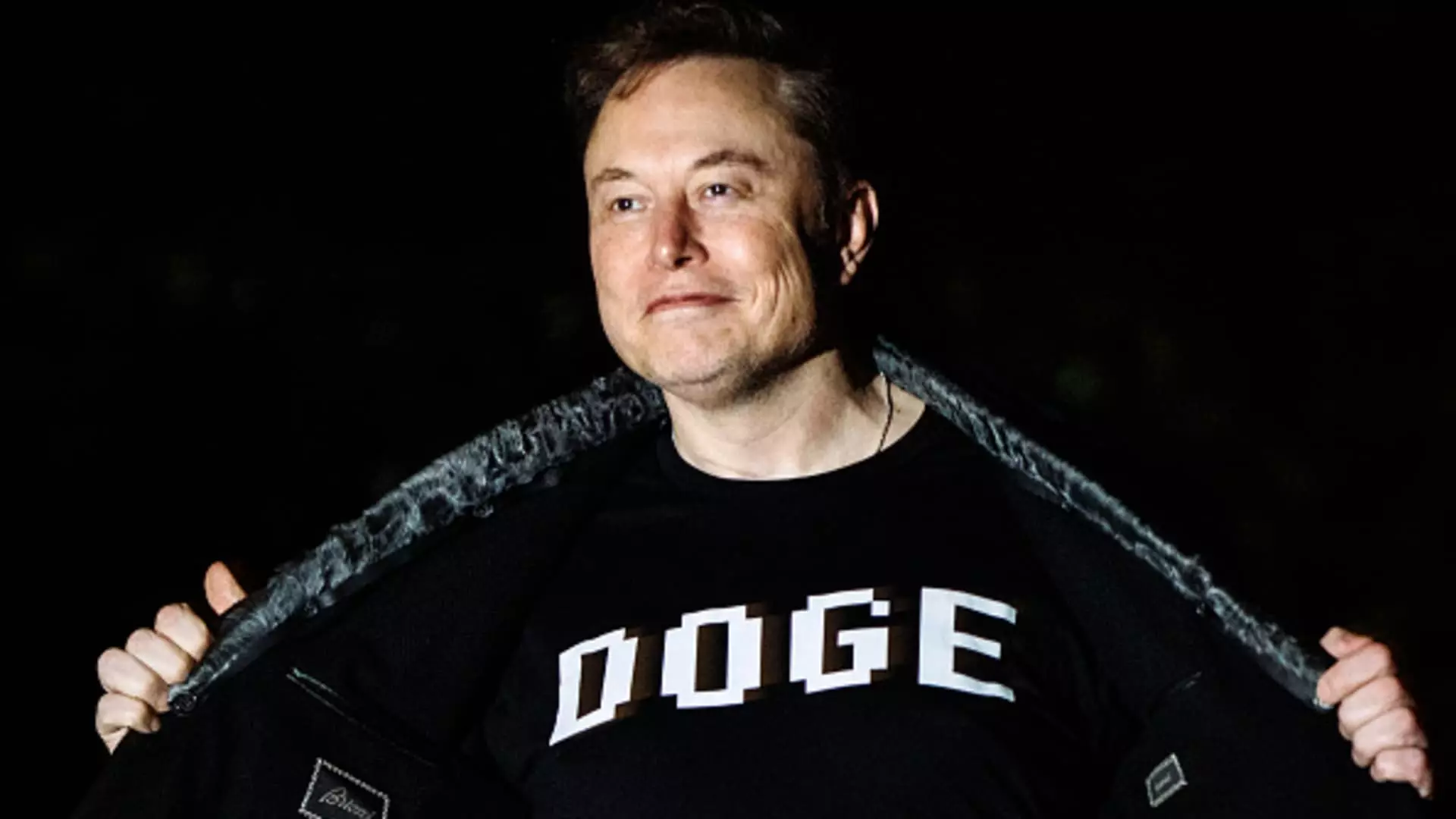Tesla’s recent stock fluctuation demonstrates the volatile nature of the electric vehicle market and the influence of its CEO, Elon Musk. A report from Politico indicated that Musk might step back from his role at the Department of Government Efficiency, igniting a wave of optimism among investors. Following this news, Tesla shares experienced a 5% increase, bouncing back from an earlier 6.4% dip caused by disappointing vehicle delivery numbers. This situation underscores the fragility of Tesla’s current standing, as investor sentiment can shift dramatically based on developments surrounding Musk’s involvement in governmental affairs.
A Broader Context of Struggles
Despite Wednesday’s brief resurgence, Tesla’s stock has faced a daunting decline over the past month, shedding over 5%, and a staggering 31% drop year-to-date. The considerable 36% decrease in share value during the first quarter of this year marks a significant downturn for the company. The challenges Tesla faces stem not only from market performance but also from the increasing complications posed by Musk’s government role, which has led to protests, boycotts, and attacks on Tesla assets globally. These sociopolitical impacts create a complicated backdrop that weighs heavily on the company’s reputation and stock performance.
The Dual-Edged Sword of Political Engagement
Elon Musk’s involvement in politics appears to be a double-edged sword. While many supporters appreciate his advocacy for certain political figures, these engagements have simultaneously fueled criticism and backlash against Tesla. His financial contributions and outspoken support for candidates like Brad Schimel have drawn fire from opposition groups, who argue that his political actions detract from the core mission of Tesla and overshadow its achievements. This interplay between business and politics illustrates the perilous terrain that innovative CEOs must navigate, especially when their political interests diverge from their corporate responsibilities.
Challenges Beyond Musk’s Role
Additionally, the economic landscape presents further obstacles, such as former President Trump’s automotive tariffs impacting Tesla’s supply chain. With many key suppliers located in Mexico and China, concerns about cost implications create an environment of uncertainty around production and pricing strategies. The combination of fluctuating market conditions and governmental influences raises questions about Musk’s ability to steer the company back to stable growth.
The Stakeholder Perspective
For shareholders, the recent volatility raises important questions about the future of their investments. Musk’s candid admission in a recent rally revealing that the value of Tesla stock has halved for many investors signifies the pressing concern among stakeholders. As calls for legal action against Tesla on behalf of New York City pension funds surface, the focus on Musk’s dual commitments could distract from the company’s potential for innovation and growth in the EV sector.
Ultimately, the road ahead for Tesla appears challenging, marked by external criticisms and internal conflicts that necessitate careful navigation. The anticipated return of Musk’s full attention to Tesla may restore some investor confidence, but the complexities of the current situation demand a strategic reassessment of the company’s approach in the face of immense pressure.

